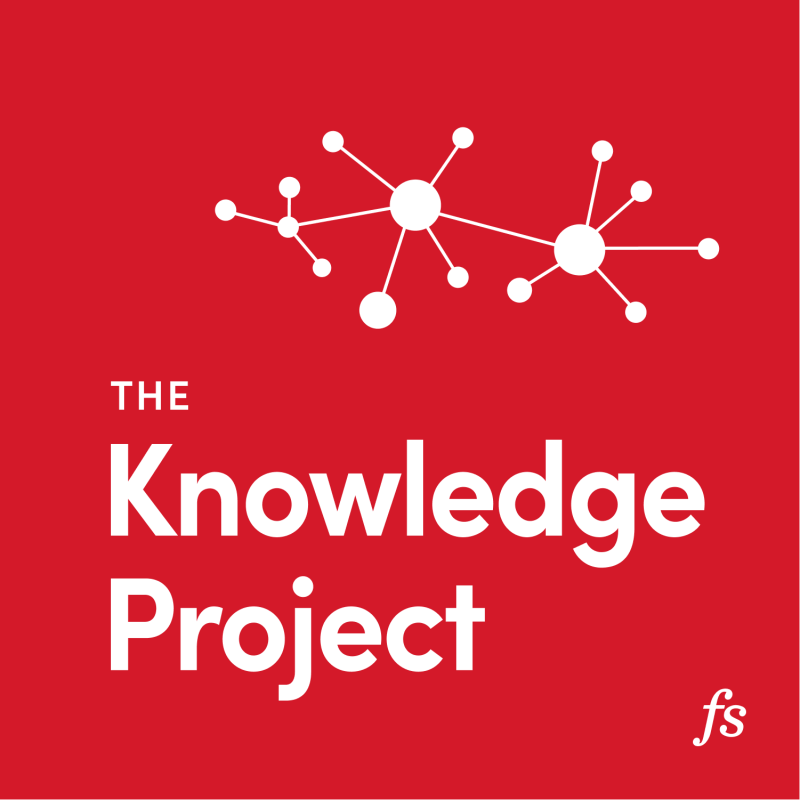This podcast was recorded on February 26, 2022.
Balaji Srinivasan makes a return appearance to The Knowledge Project, this time to go in-depth on Web3, Crypto, and the state of the world today. Srinivasan offers his unfiltered thoughts on the advantages and disadvantages of established democracies, the Russia-Ukraine situation, housing as an investment, education, legacy wealth, and which country he would bet on to dominate the future.
Available now on: YouTube | Apple Podcasts | Spotify | Transcript
Srinivasan is the former CTO of Coinbase and General Partner at Andreessen Horowitz, and is an early investor in many successful tech companies and crypto protocols. He is also the author of the book The Network State: How To Start a New Country, set for release July 4, 2022.
Here are a few highlights from the conversation:
We have gotten away from what science is supposed to be, which is independent replication. It’s become prestigious citation and insistent repetition.
But it’s difficult to falsify. Point being that you can build effectively a chain of custody for data. From the instrument, to the paper, to the chain of citations that leads you to the premise and conclusion that you’re supposed to base your life on today.
And my counter argument was, you don’t need to stamp to send an email, you don’t need a TV license broadcast on YouTube, you don’t need a radio license to do a podcast and you don’t need to use old regulations to constrain the future.
Because the guy who writes a headline on the day of the election then controls a million votes and you have only one. That’s why they say our democracy in the possessive sense because somebody who runs a major newspaper or media corporation controls many more votes, it’s their democracy, not yours.
So if you’re concerned about a non-transparent algorithm, you can actually see it executing for yourself. What that means is people can’t just lock you out completely.
Timestamps:
00:00 – Intro
01:08 – What Balaji has changed his mind about
07:30 – The most boring story – The Canadian Initiative
10:07 – Predicting COVID
15:38 – On personal COVID vaccines and immunity
22:33 – Government binary groupings
26:10 – Variations of “Science” and how it’s hurt our world
30:40 – How crypto is changing the information supply chain
55:20 – Russia and Ukraine impact on crypto
1:00:47 – Nepotism, the New York Times, and Journalism
1:09:43 – Ascending world vs. Descending world
1:13:09 – Censorship, free speech, and distribution
1:22:48 – How Balaji would have handled the trucker’s in Canada
1:30:10 – Stalin’s war
1:34:39 – The Social War: Digital capture the flag
1:44:03 – “Web3 will be Waterloo for wokeness”
1:54:10 – What advantages & disadvantages do established democracies have?
02:04:05 – The impact of the housing market
02:10:40 – Balaji on legacy wealth
02:13:27 – What’s the biggest problem with our educational system?
02:21:49 – How do you recognize talent and hire?
02:24:27 – What’s your take on Twitter banning a sitting president?
02:30:59 – What country is going to win the future?
02:57:52 – Most overrated & underrated tech companies
03:06:20 – What one book would Balaji read over and over again?
Links mentioned:
- Essay on how Balaji changed his mind on Bari Weiss’ blog
- Boring headline, “Worthwhile Canadian Initiative”
- FedEx Ad
- The Social War Twitter thread
- COVID Jan 30 predictor thread
Books mentioned:
- Seeing Like a State – James C. Scott
- Perceptrons – Marvin Minsky

